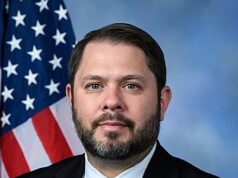Congress Should Follow Tax Bill By Extending Energy Efficiency Incentives
WASHINGTON – (RealEstateRama) — The Alliance to Save Energy on Monday criticized Congress’s pending tax legislation for failing to include direct energy efficiency incentives and led a group of businesses and organizations calling for Congress to quickly reinstate several expired efficiency tax provisions, including one that gives homeowners up to $500 for upgrading the efficiency of their homes.

The U.S. tax code currently includes no meaningful provisions encouraging efficiency. An Alliance-led letter to Congress today signed by 21 companies and organizations calls for addressing that omission by updating and reinstating the lapsed incentives, which expired Dec. 31, 2016. Several senior senators have recently called on Congress to reinstate expired incentives through a year-end “tax extenders” package.
“Energy efficiency is among the leading employers in the entire energy sector, supporting nearly 2.2 million U.S. jobs,” the letter states. “It is both an economic opportunity – saving consumers and businesses billions of dollars per year while creating economic activity – and the single most important solution we have for responsibly managing our natural resources and reducing harmful emissions.”
Added Alliance President Kateri Callahan: “The pending tax overhaul makes massive changes to our tax system yet fails to directly incentivize improved energy efficiency. Energy efficiency tax incentives save money for homeowners, businesses and taxpayers while stimulating economic activity that creates jobs and eliminates vast amounts of pollution. It’s encouraging that key lawmakers are discussing moving a separate package of energy tax extenders. Congress should work quickly to modernize and reinstate incentives that encourage energy efficiency and all of the savings it delivers.”
Callahan noted that the tax bill conference agreement includes one positive development for energy efficiency concerning the expensing of building equipment and components such as heating and air systems. Although buildings account for 40 percent of U.S. energy consumption, purchase of upgraded equipment has long been discouraged in the tax code, as equipment with a useful life of 10 or 20 years must be expensed over 39 years. By eliminating that obstacle, the tax bill’s expensing and depreciation provisions should encourage companies to purchase more efficient equipment.
Three major energy efficiency incentives expired on Dec. 31, 2016: one that incentivizes homeowners for efficiency upgrades and equipment purchases such as weatherizing or installing new windows or more efficient heating and cooling equipment; another that incentivizes home builders for more efficient construction; and the third for efficiency improvements of commercial buildings and multi-unit residential buildings. The Alliance has called for updating and reinstating those or implementing new incentives that encourage, for example, public-private partnerships or master limited partnerships around efficiency projects. For more information about the incentives, read the Alliance’s fact sheet.
About the Alliance to Save Energy
Founded in 1977, the Alliance to Save Energy is a nonprofit, bipartisan alliance of business, government, environmental and consumer leaders working to expand the economy while using less energy. Our mission is to promote energy productivity worldwide – including through energy efficiency – to achieve a stronger economy, a cleaner environment and greater energy security, affordability and reliability.
###
MEDIA CONTACTS
Ben Somberg
(202) 530-2223













